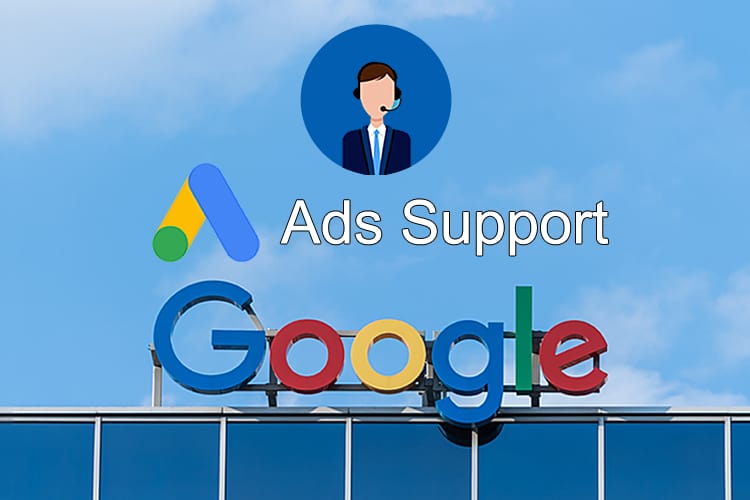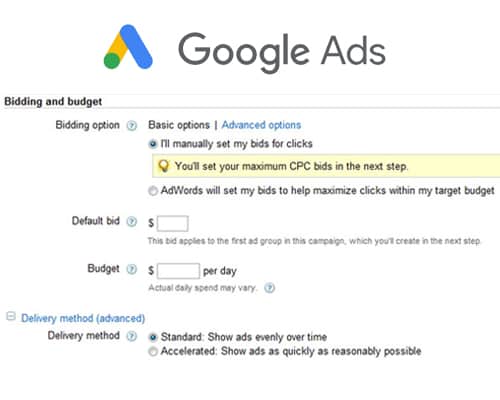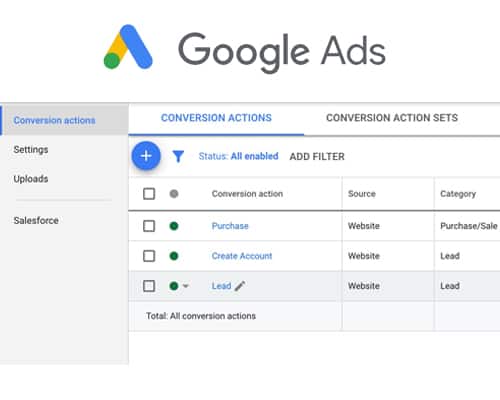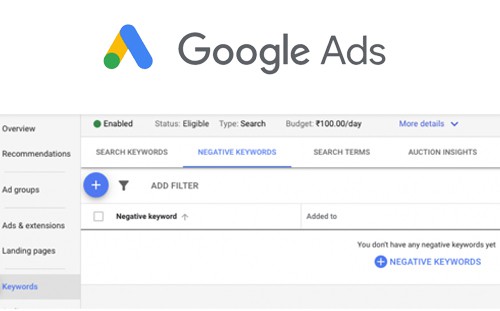When you own a business whether it is based out of your garage or an office building, you have to think about advertising. Promoting your product or service is how you get more customers in the books and grow your business. There are countless advertising strategies and platforms, and one of the most popular in today’s world of search engines and online research is Google Ads (formerly called Google AdWords).
This online advertising platform developed by Google is designed to streamline advertising efforts. And if you already have a Google Ads account, you know that while Google makes it simple to navigate, your success isn’t guaranteed. It’s up to you (or your in-house advertising team) to employ the best strategies for your business.
Google wants to help make that happen. As part of their service, the Google Ads team often sends out emails to subscribers. They say they want to set up a phone call to review suggestions to optimize your Google account. But what does that actually mean? Is it a legitimate request? Is it beneficial to your business? If you’ve ever received an email like this, it can be hard to tell.
After moving forward with a handful of these phone calls, we at StepForth Web Marketing have found that the suggestions Google calls about are usually directed toward budget and bidding changes for more conversions. We know running a business already takes up much of your time, but representatives with Google Ads are both knowledgeable and experienced when it comes to online advertising and marketing. They often have valuable suggestions, but at the same time, it’s important to look at the big picture of your business.
Below you will find information about some of those Google suggestions that you can expect to hear on a phone call with a Google Ads representative. We’ll also talk about the value of those suggestions and the other details you need to be aware of.
Bid & Budget Recommendations
1. Limited by Budget Campaigns
The most common recommendation in Google Ads accounts usually deals with campaigns that are ‘Limited by Budget’. Most small businesses consider themselves part of this category. All it means is that your advertising efforts have a budget, and you need to always be conscious of that.
Google’s first recommendation for budget campaigns is typically to divert more funds if you want additional conversions. They tell you this, but you also need to do what’s best for your business as a whole. Most accounts have a predetermined account budget for every month. Increasing the overall campaign budget could potentially push the entire account past your company’s financial means.
If you plan on moving forward with Google’s recommendation of increasing your budget, do so cautiously. It’s true that when it comes to good advertising, you have to spend money to make money. If there is room in your company’s budget for more advertising, adding that money to your Google Ads account could be a good strategy. But you always want to watch your account closely. If your budget truly is tight, you don’t want to spend more than what you originally planned for. Check your numbers every month to make sure your original budget is still on track.
2. Bids Set Too Low
When it comes to the keywords in the Google Ads account and the ad group/keyword-level bids that are associated with them, an issue that we often see is ‘Below First Page Bid’. This means your bid isn’t high enough to get your content on the first page of a Google search result.
Google will most likely suggest that you increase your bids to gain more clicks which will lead to additional conversions. However, this may take away from the overall productivity of the Google Ads account, especially if you have a predetermined budget.
If you decide to increase your bids to achieve first page results as per Google’s suggestion, be sure to watch the campaign budget. Look out for campaigns that are now ‘Limited by Budget’ because they’re spending their full daily budget to get those first page results. Should those campaigns become limited, and the cost per click goes up, then you will most likely lose productivity because you’ll be generating fewer clicks while spending the same amount of funds.
Conversion Recommendations
3. Switch to Maximize Conversions
A common recommendation from Google is to change the ‘Optimization Method’ in the account to ‘Maximize Conversions.’ This is where you tell Google how much your predetermined budget is and how much you want to pay per conversion. Google’s system does the rest. This suggestion is usually beneficial for those who do not want to spend a lot of time optimizing their account, but at the same time want to generate conversions.
Should you choose to go with this optimization method, be sure to keep an eye on the keywords that are generating the best conversion. Remember that Brand vs. Non-Brand keywords will convert differently. The worry is that the program will spend more money on the brand keywords and less on the non-brand keywords because of the difference in the conversion data.
Most of the time, a business running a Google Ads account is looking to grow traffic from people who do not know their brand name (non-brand keyword traffic). They are usually not trying to spend money on clicks for those searching for the brand name. If this sounds like you, keep an eye on which keywords you’re spending money on.
Keyword Recommendations
4. Add Keywords
A popular recommendation that we see inside a Google Ads account is to ‘Add Keywords.’ Depending on the keyword matching options you use, the suggested keywords are probably similar to the keywords you’re already using for the account. We like adding many variations to our Google Ads accounts which capture pluralization’s, synonyms, misspellings, etc. as we do sometimes bid differently on these types of keywords.
For those that want to move forward with the keyword recommendations, you might want to put these keywords into newly created adgroups to test them out. It’s a good idea to know whether those keywords will actually convert before adding them to active adgroups already in the account.
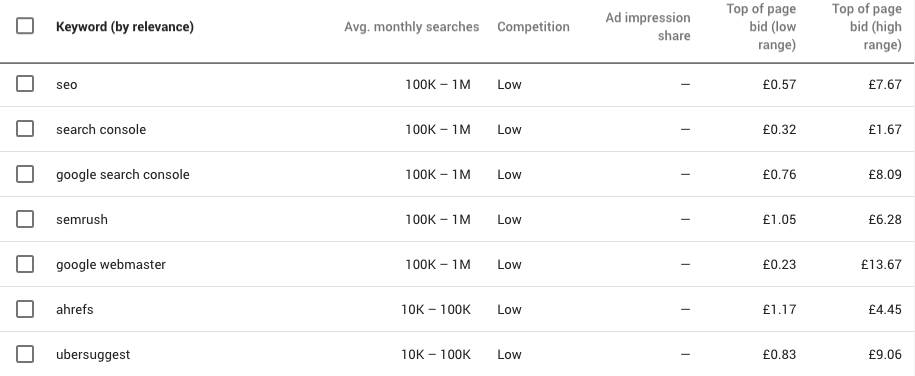
Source: ahrefs.com
5. Negative Keyword Conflicts
As you go through your Search Term reports, you’ll most likely find ‘negative keywords’ added to the account. A negative keyword is a type of keyword that blocks an ad from being triggered by your chosen regular keyword. For example, if you list the word “cheap” as a negative keyword and “nail design” as a regular keyword, you’re telling Google not to show your ad if someone would search for “cheap nail design.”
Sometimes in an account that has many keywords, your negative keywords and regular keywords can overlap. This means your ads will sometimes be blocked when you don’t want them to be. A call with a Google representative could potentially help you mitigate these conflicts.
Please note, if you are seeing this recommendation in your Google Ads account, an alternative option would be to double-check the ‘keyword’ which is being blocked by the negative, and potentially remove the keyword from the account (based on the importance of the keyword and if you actually do want it in the account).
Extension Recommendations
6. Add Extensions to Campaign
When creating or managing many different campaigns, extensions made at the campaign level may be overlooked and/or missed. In the Recommendations area of your Google Ads account, you will see many different extension suggestions. An extension is an extra snippet of information that you can tack on to ad content. These are useful to help potential customers/clients get as much information about you as possible.
Here are a few extensions you can choose:
- Add sitelinks to your ads
- Add descriptions to your sitelinks
- Add seller ratings to your ads
- Add price extensions to your ads
- Add call extensions to your ads
- Add callouts to your ads
- Locations extension not running
You only want to choose extensions that will be the most beneficial to your campaign. Too much information will overwhelm your viewers. A Google representative should be able to discuss which extensions would work best for your specific ad.
Overall, should you choose to have a similar phone call with Google, you can now be a bit more informed about some of the suggestions that their representative is going to discuss.
The main thing to remember is that Google Ads is an advertising business that helps its customers generate potential leads/sales. Most of their suggestions revolve around meeting this goal; however, they usually involve spending more money by increasing budget and/or bids.
Don’t feel pressured into spending money you know you don’t have. If you choose to set up a phone call with a Google representative, be clear about your budget and expectations.
One way to ensure your business gets the most out of Google Ads is to enlist help from proven professionals. StepForth Web Marketing has been providing Google Ad services for over 13 years. StepForth CEO, Ross Dunn, and his team of web marketing experts create custom advertising campaigns based on a business’s specific needs. Their strategies are targeted toward an ideal audience to deliver a direct return of investment. And while navigating Google Ads can seem like a case of trial and error in terms of your budget, StepForth designs strategies that utilize marketing dollars in the best ways possible. Contact StepForth today to schedule a strategy session and get started with custom pay per click advertising.
